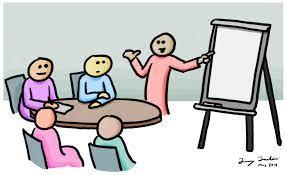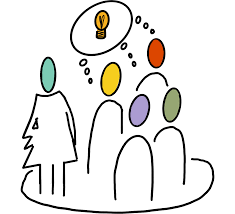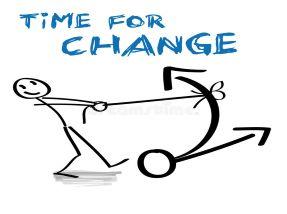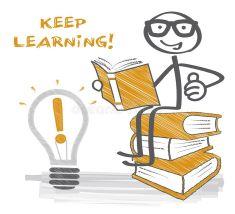From Novice to Expert: Building Competencies for a Successful CLA Career
Collaborating, Learning, and Adapting (CLA) is an approach to development that emphasizes the importance of continuous learning and adaptating in complex, dynamic environments. CLA professionals are individuals who apply this approach in their work, collaborating with stakeholders to achieve common goals, and continuously learning and improving along the way. To be successful in this role, you are expected to have a unique set of competencies that will help you work effectively in such environments, collaborate with others, and continuously learn and adapt to achieve your goals.
These competencies will help you apply the CLA approach in your work and could be a valuable resource for professionals looking to enhance their skills and improve their work.
Facilitation Skills: In our places of work, we often organize events with agendas detailing the objectives we aim to achieve, but we rarely follow up to determine whether these objectives were met. Simply having a high number of invited participants does not equate success. So, who should be responsible for ensuring the event achieved its purpose and that expectations were met? The answer is the facilitator, and this is one of the key competencies required of a CLA professional.

As a CLA professional, you must have the skill of guiding a group of people through a process of working together, building consensus, and leading productive discussions to accomplish your set objectives and meet the needs and objectives of the stakeholders. You will lead important events such as Pause and Reflect, CLA workshops, learning events, and the critical CLA maturity self-assessment workshop. There are many resources available online to help you develop these skills, but two of the best are "The Facilitation Skills Workbook" by Tearfund" and "Introducing Knowledge Sharing Methods and Tools: A Facilitator's Guide."
Understanding the CLA Approach: When I began my career in CLA, I was initially confused about how to integrate the approach into my work. It seemed like a complex theory. Questions keep running through my mind like: What does it look like in the real world? Has anyone used these approaches and practices before to achieve their development outcomes? You might be asking the same question and not finding any answers. However, as a CLA professional, it is crucial to not only understand the framework but to be able to effectively integrate it into your work.

The USAID Learning Lab provides a wealth of tools and resources for learning about CLA. Some key resources to start with include: Introduction to CLA in the Program Cycle: a 45-minute online course that will introduce you to the basics of CLA, the CLA framework, and ways to integrate it into your work. CLA Case Competition Submissions: This showcase over 500 examples of USAID staff and partners using a CLA approach for organizational learning and improved development outcomes and The CLA Toolkit: This is a collection of curated tools and resources to help you integrate CLA into your work.
Flexibility and Adaptability: Have you ever suggested changes to an organizational policy or project work plan based on data evidence, only to face resistance from your team when things are not working as expected? Or have you ever implemented a three-year project strategy and work plan without making any changes throughout the whole period, despite changes in context? This is a common issue in the development world and can often be a result of fear of the unknown. People may feel comfortable with the status quo and see no need for change, as it may require effort, time, and energy. As a CLA professional, it is crucial to possess the ability to learn quickly, respond to changing circumstances, and adapt to new information and feedback. Additionally, you must be able to convince the project or organizational leadership and team to change their approach based on new learning to achieve better outcomes in complex, uncertain, and dynamic environments.

To be successful in this role, it is important to have a deep understanding of the CLA approach and principles of adaptive management, including systems thinking, complexity, and the need for continuous learning and adaptation. You and the team you work with should have the flexibility and adaptability to operate in a constantly changing environment and think creatively and outside the box to find solutions to complex problems. There are many resources on adaptive management available on the USAID Learning Lab to help you understand these concepts.
Continuous Learning and Improvement: Do you have strong analytical skills, including the ability to analyze data, identify patterns and trends, and draw meaningful conclusions to inform learning and improvement? Have you ever reviewed your theory of change, project work plan, and strategies and questioned their feasibility, and also sought answers to your questions through various research methods? When was the last time you reviewed evaluation reports on the shelf and documented valuable information about successful practices that can be adapted to your project? Can you see beyond the analysis and describe its implications for your project?

As a CLA professional, you should possess these skills and have also a probing mindset and a commitment to continuous learning. You should also be willing to challenge assumptions and beliefs and learn from failure. You should be able to learn from experience, identify and analyze problems, and develop and implement solutions to achieve development outcomes. This competency can be developed through reading and understanding the development and implementation of learning agendas, research methodologies, and the art of powerful questions.
It is worth mentioning that becoming a successful CLA professional requires ongoing learning and improvement. By staying current with developments in the field, seeking out new learning opportunities, and continuously developing your skills, you can ensure that you remain at the forefront of the CLA approach. With the right combination of knowledge, skills, and experience, you can become a highly effective CLA professional and make a lasting impact in your field.
In conclusion, It is important to note that these competencies are not exhaustive, and the specific skills and knowledge you need will depend on the specific context in which you work. Whether you are just starting in your career or looking to expand your skillset, developing these competencies will help you succeed as a CLA professional.




